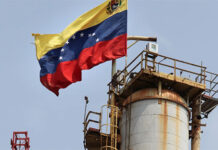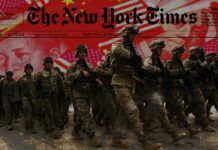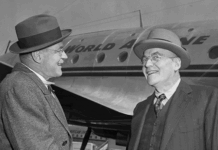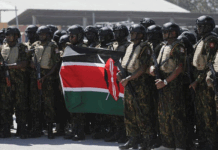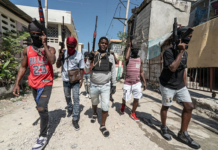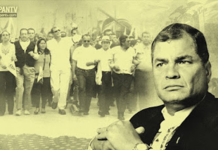
“The interference and interventionism of the U.S., as well as its intention to direct Honduran politics through its Embassy and other representatives, is intolerable.”
The categorical post by the President of Honduras, Xiomara Castro, exposed foreign interventionism in her country, which is not new but has intensified during her administration.
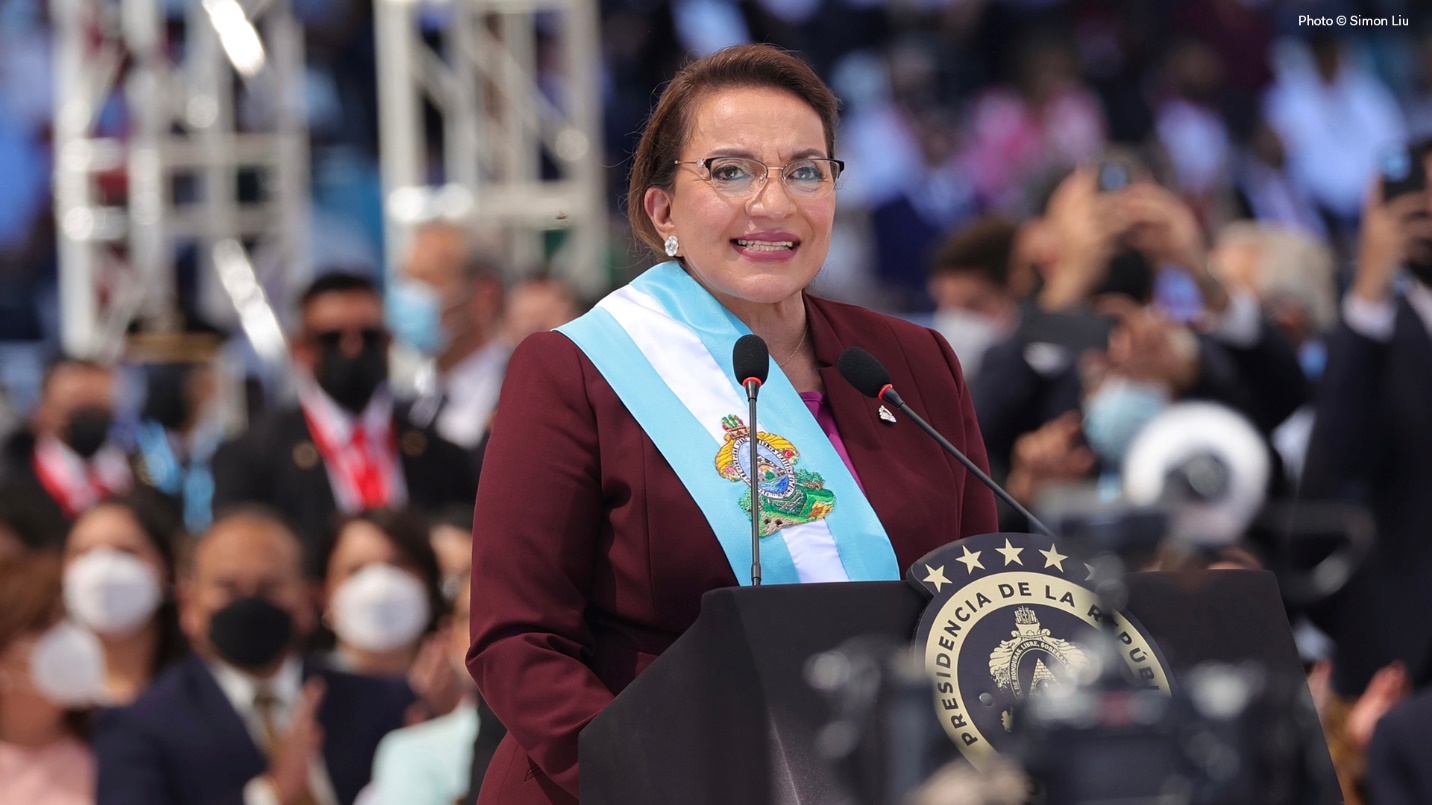
As detailed by social leader Luis Méndez of Mesa 11 and CELAC Social, “we cannot lose sight of the historical hegemony of the United States in the region. Over a century of interference and dependence, in the case of Honduras, a country marked by the mining and banana enclave of the past century.”
The exploitation of gold and silver in the mines of Rosario, San Juancito with the Rosario Mining Company, the place where the United States established its first embassy, and the banana enclave with the United Fruit Company and Standard Fruit Company in the first half of the 20th century are two key events to contextualize the role of the U.S. in Honduras and the region.
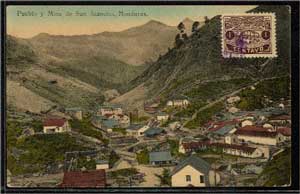
The attack and overthrow of Guatemalan President Jacobo Árbenz in 1954, organized from U.S. geo-military laboratories in Honduras, demonstrate that, beyond any economic development initiatives from the U.S. for the region, its supreme interest was always its geo-political and geo-strategic control.
Its false “Alliance for Progress” initiative during the presidency of John F. Kennedy was merely an excuse to implement the blockade against Cuba, and in the 1980s, the establishment of the Palmerola military base in Comayagua. It was part of a strategy to contain the advance of the left on the continent, particularly supporting the Nicaraguan counter-revolution and weakening the Farabundo Martí National Liberation Front (FMLN) project in El Salvador.
It was the United States that planned and carried out the political-military coup against Manuel Zelaya in 2009, the first “soft coup” of the 21st century, which aimed to contain the advance of the popular project represented by ALBA.
Currently, interference under the representation of the U.S. Ambassador to Honduras, Laura F. Dogu, is a continuation of a historic project of American control and domination over the governments of the region.
The exception is the sovereign government of Nicaragua, which in 2018 expelled and declared Laura Dogu “persona non grata” for being part of the destabilization project and attempt to overthrow President Daniel Ortega and Vice President Rosario Murillo.
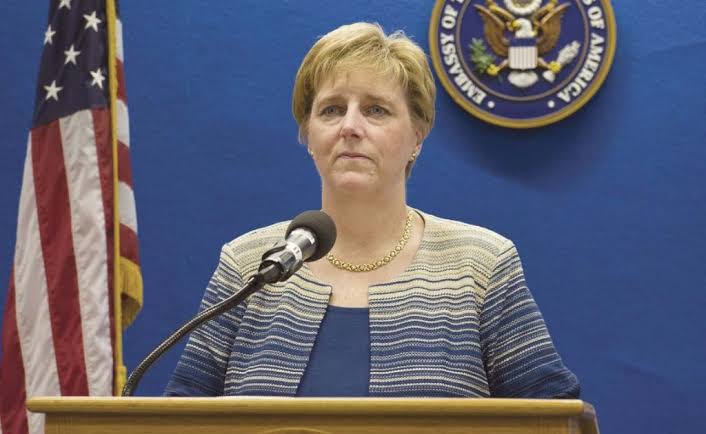
After being expelled from Nicaragua, the U.S. appointed Dogu as ambassador to Honduras to counteract the advance of the left in the region. She has training and experience in foreign intervention in sovereign decisions of other countries: She served as foreign policy adviser to the U.S. Army Chief of Staff.
The official embassy portal itself acknowledges this interference, albeit with euphemisms: “She left that country stating that ‘investors must be aware of the physical, financial, and reputational risks of doing business in Nicaragua.’” With these credentials, she arrived in Honduras to carry out a similar agenda.
“Local Foundations and NGOs”
Behind the U.S. developmental guidelines and the false pretense of safeguarding “democracy,” international and local actors have aligned themselves to limit and destabilize President Castro’s administration, and to influence the upcoming 2025 general election, pushing for a return to the traditional system of governments servile to northern interests.
The role of NGOs and foundations controlled by USAID and NED, under the guise of “social aid, anti-corruption efforts, freedom of expression, and the false war on drugs,” serves as the perfect excuse to boycott popular, leftist and progressive governments. To justify their interference, they always label them as “corrupt,” and they associate “freedom” with the economic interests of local elites and U.S. companies.
Among the most influential NGOs and foundations in Honduras is the Association for a More Just Society (ASJ), founded by a group of Hondurans and Americans and funded by USAID and the State Department. One of its key areas of attack on the government is the criticism over the “high energy losses in Honduras.”
To address this, they “urgently require the unification of efforts to reduce losses.” In doing so, they question one of the most important and structural public policies of Xiomara Castro’s government: the recovery of the energy sector, now understood as a human right, no longer as the loot of businessmen who, for decades, accumulated capital by selling energy to the state at high costs.
The destabilizing role of the National Anti-Corruption Council (CNA) has a distinguishing feature in its method of infiltration: the CNA is led by an Assembly composed of representatives from 12 civil society organizations, including business chambers, churches and the media. Through and with the funding of the Council, the United States intervenes in Honduras.
The third organization is the Honduran Council of Private Enterprise, whose “mission is to contribute to national economic development through the strengthening of Free Enterprise.”
As social leader Luis Méndez explains, “these NGOs and foundations receive money that they then channel into a communication project to carry out a campaign of constant aggression against the country’s refoundation project.”
The “narco video” of destabilization
The Secretary of the National Congress and Xiomara Castro’s brother-in-law, Carlos Zelaya Rosales (brother of former President Zelaya Rosales and father of the Minister of Defense, José Manuel Zelaya Rosales), appeared before the Public Ministry and confessed to having met with a group of drug traffickers in the context of the 2013 election.
There, they discussed the possibility of providing financial resources for the campaign of the now-ruling party Libre. Several years later, Insight Crime, an NGO that works on journalistic investigations into drug trafficking and organized crime, released the news known as the “narco video,” in which Carlos Zelaya Rosales is seen with known criminals in the country.
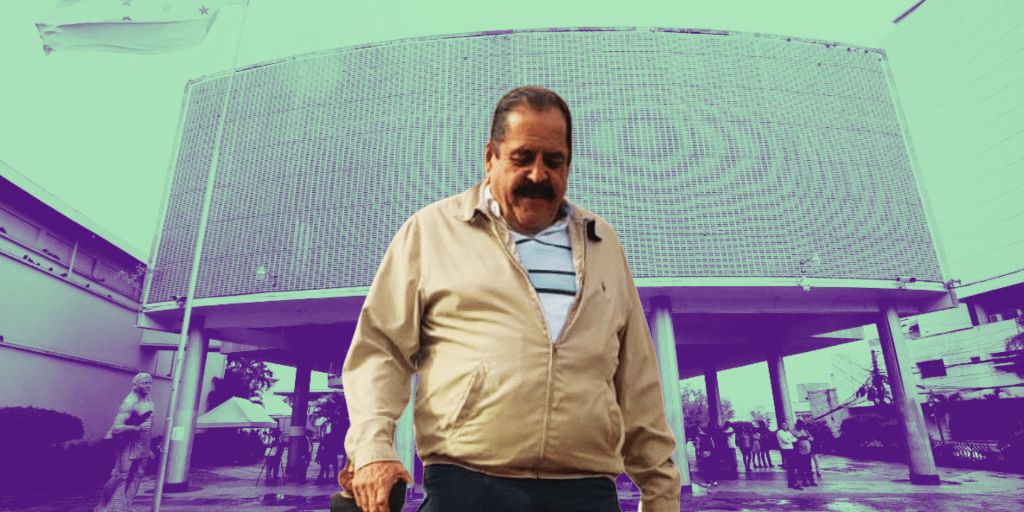
In this regard, President Castro stated at a press conference: “I condemn all types of negotiations between drug traffickers and politicians.” Subsequently, the president denounced having detected “movements within the Armed Forces” aimed at carrying out a coup d’état.
This was compounded by the public statements made by Ambassador Dogu regarding the visit of the Minister of Defense to Venezuela and his meeting with Vladimir Padrino, which internally triggered a media onslaught from the corporate press and NGOs controlled by the embassy.
In light of this situation, President Castro ordered Foreign Minister Eduardo Reina to “denounce” the country’s Extradition Treaty with the United States, as a powerful tool to counter U.S. interference in her government.
This incident of the “narco video” puts several issues into perspective: First, the radical distancing that must exist between “the government’s Refoundation” project and issues related to drug trafficking and corruption; second, any political party or current allied with drug trafficking and narcopolitics is destined, sooner or later, to perish; third, narco-politics is a product of former President Juan Orlando Hernández, extradited to the United States, and is a hallmark of the National Party and the Honduran right, and, fourth, the situation exposes the false U.S. policy in the fight against drugs, given the role played by the DEA and the State Department in the anti-drug efforts.
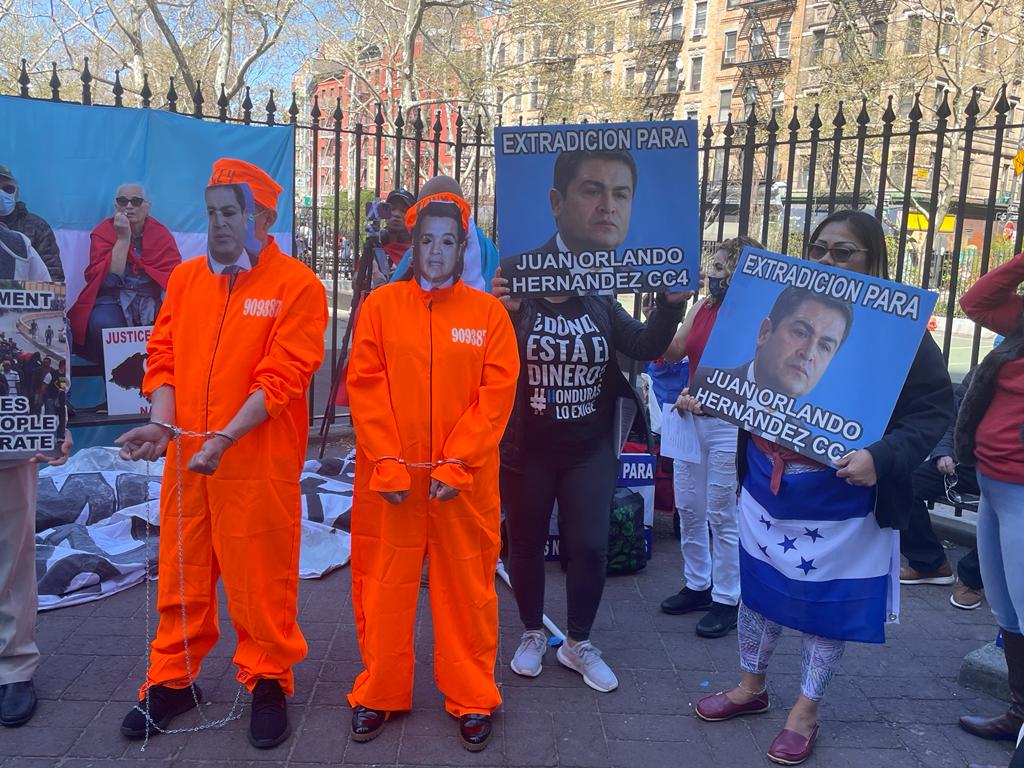
The structural reforms of Xiomara Castro
The Freedom and Refoundation Party (LIBRE) was established as a result of the struggle of social, Indigenous and popular organizations that formed the National Front of Popular Resistance after the coup d’état against Manuel Zelaya in 2009.
During the current government of Xiomara Castro, a series of policies have been implemented that affect the interests of economic and political groups, sectors that have historically divided the state and its institutions for personal, family and corporate interests rather than for the population.
Among these, we list:
- The repeal of the Employment and Economic Development Zones Law (ZEDE), which implied a loss of national sovereignty.
- The proposed Tax Justice Law, still not finalized but already heavily criticized by business chambers.
- Honduras’s denunciation of the International Center for Settlement of Investment Disputes (ICSID).
- The National Electric Energy Company (ENEE), and the service considered a human right, with subsidies for families consuming 150 kilowatts or less monthly.
- The order not to renew more than 200 trusts that were in the hands of private banking.
- A subsidy of 10 lempiras (about 40 cents of a dollar) per gallon of fuel.
- Improvements to the road network, among others.
At the level of foreign policy, the following actions have generated discomfort in the United States:
- The severing of relations between Honduras and Taiwan and the establishment of relations with the People’s Republic of China.
- The close relationship of the Honduran government with Cuba, Nicaragua and Venezuela.
- The recognition by the Honduran government of the electoral results in Venezuela in 2024, in favor of President Nicolás Maduro.
The profound changes of the Xiomara Castro government are evident in Honduran society. Eugenio Sosa is a sociologist and director of the National Institute of Statistics. He says that: “Xiomara found 73.6% of Honduran households in poverty, and by 2024, the trend is that households in that condition will be at 62.9%. Meanwhile, extreme poverty decreased from 53.7% to 40.1% of households.” The economy is also returning to a path of order and less inequality: “In 2022, due to the geopolitical effects of the war between Russia and Ukraine, inflation reached 9.80%. In 2023, it decreased to 5.19%, and it is expected to close in 2024 at 4.96%.” Various social indicators from the Institute reflect this: “The unemployment rate in 2021 was 8.6%, in 2023 it dropped to 6.4%, and for 2024, it is expected to be 5.2%.”
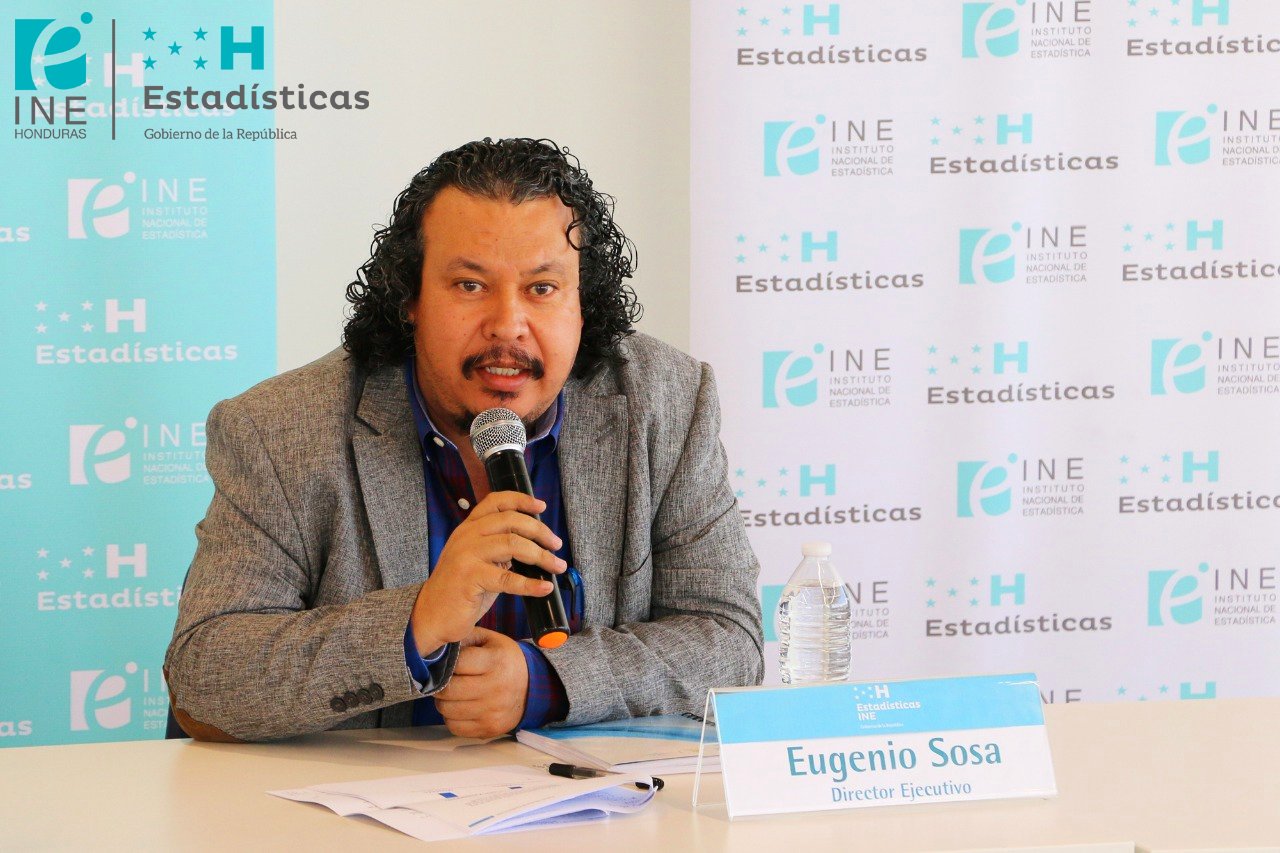
The improvement in the indices is related to the reactivation of the economy and the increase in public and social investment. Investment in infrastructure and the revitalization of agriculture have increased. This has allowed food insecurity to decrease from 28% to 18%, according to the World Food Program (WFP).
For human rights attorney Leticia Salomón, Xiomara Castro’s government has helped Honduras “achieve progress in health and education, in addition to the repair and construction of airports and roads. She implemented a social policy focused on school supplies and meals, seeds and fertilizers for farmers, and financial assistance for obtaining housing for low- and middle-income families.”
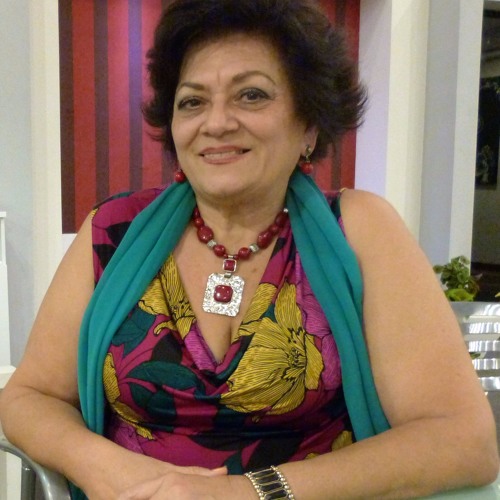
But there are many pending issues for the government: “Reforming or eliminating the laws that supported the abuses of the previous government, related to corruption and drug trafficking. In addition, there is the need to restructure the political, business, media, and religious opposition, supported by international opposition, particularly by the U.S. Embassy,” Salomón says.
Precisely, that is the main challenge for the ruling Libre Party in the 2025 elections, and what the alliances of local elites with the U.S. Embassy want to condition and, if possible, block.

CovertAction Magazine is made possible by subscriptions, orders and donations from readers like you.
Blow the Whistle on U.S. Imperialism
Click the whistle and donate
When you donate to CovertAction Magazine, you are supporting investigative journalism. Your contributions go directly to supporting the development, production, editing, and dissemination of the Magazine.
CovertAction Magazine does not receive corporate or government sponsorship. Yet, we hold a steadfast commitment to providing compensation for writers, editorial and technical support. Your support helps facilitate this compensation as well as increase the caliber of this work.
Please make a donation by clicking on the donate logo above and enter the amount and your credit or debit card information.
CovertAction Institute, Inc. (CAI) is a 501(c)(3) non-profit organization and your gift is tax-deductible for federal income purposes. CAI’s tax-exempt ID number is 87-2461683.
We sincerely thank you for your support.
Disclaimer: The contents of this article are the sole responsibility of the author(s). CovertAction Institute, Inc. (CAI), including its Board of Directors (BD), Editorial Board (EB), Advisory Board (AB), staff, volunteers and its projects (including CovertAction Magazine) are not responsible for any inaccurate or incorrect statement in this article. This article also does not necessarily represent the views the BD, the EB, the AB, staff, volunteers, or any members of its projects.
Differing viewpoints: CAM publishes articles with differing viewpoints in an effort to nurture vibrant debate and thoughtful critical analysis. Feel free to comment on the articles in the comment section and/or send your letters to the Editors, which we will publish in the Letters column.
Copyrighted Material: This web site may contain copyrighted material the use of which has not always been specifically authorized by the copyright owner. As a not-for-profit charitable organization incorporated in the State of New York, we are making such material available in an effort to advance the understanding of humanity’s problems and hopefully to help find solutions for those problems. We believe this constitutes a ‘fair use’ of any such copyrighted material as provided for in section 107 of the US Copyright Law. You can read more about ‘fair use’ and US Copyright Law at the Legal Information Institute of Cornell Law School.
Republishing: CovertAction Magazine (CAM) grants permission to cross-post CAM articles on not-for-profit community internet sites as long as the source is acknowledged together with a hyperlink to the original CovertAction Magazine article. Also, kindly let us know at info@CovertActionMagazine.com. For publication of CAM articles in print or other forms including commercial internet sites, contact: info@CovertActionMagazine.com.
By using this site, you agree to these terms above.
About the Author
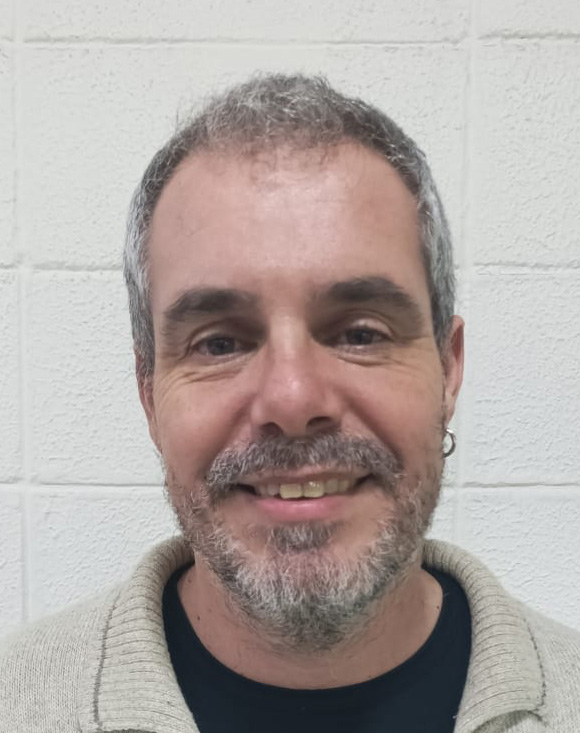
Hernán Viudes is an independent journalist and a graduate from The Faculty of Social Sciences at the University of Buenos Aires. He lives in Argentina and enjoys music, culture and football.
Hernán can be reached at hernanviudes@gmail.com.

